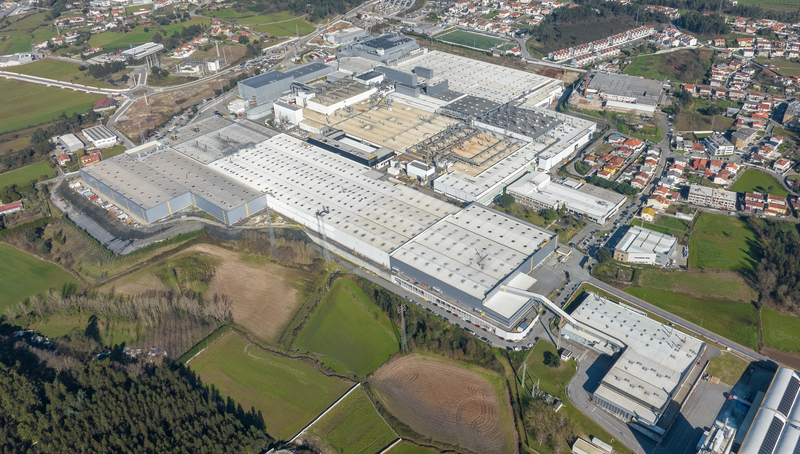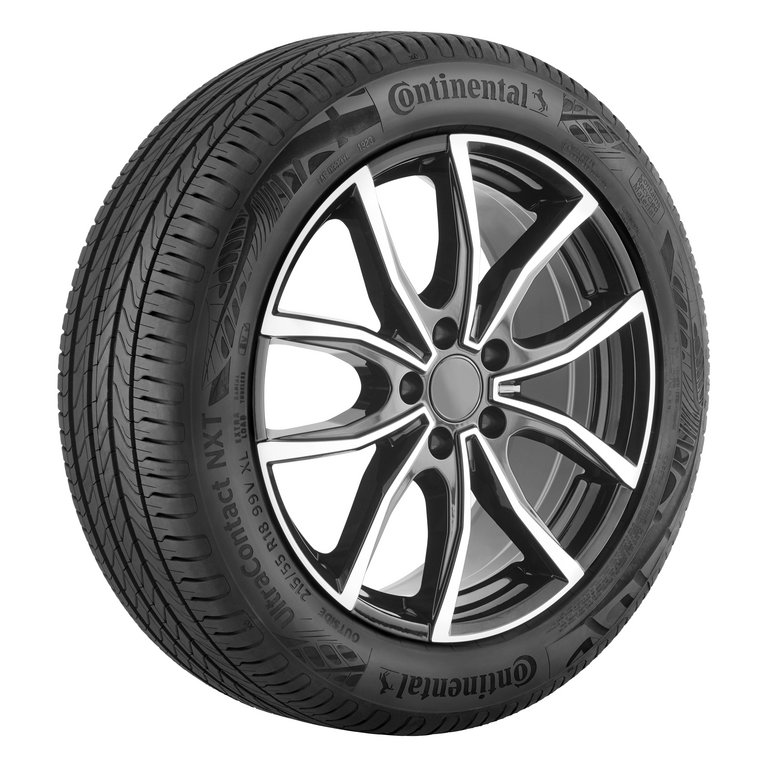Continental Tire Plant in Portugal Receives Internationally Recognized ISCC PLUS Certification
- High standards of transparency and traceability of renewable and recycled raw materials along the entire supply chain certified
- “The certification underscores our strong commitment to more transparency along the entire supply chain,” says Jorge Almeida, Head of Sustainability Tires at Continental
- Continental's aim: Over 40 percent renewable and recycled materials in its tires by 2030
Hanover, Germany, August 31, 2023. Continental's tire plant in Lousado, Portugal, recently received the International Sustainability and Carbon Certification (ISCC) PLUS. This internationally recognized certification confirms Continental’s compliance with special sustainability standards at its Lousado plant. It also attests to transparency regarding the traceability of the raw materials used in the production processes. By certifying the raw materials, Continental can ensure complete traceability of materials from sustainable sources. This represents yet another important milestone along the road toward 100 percent sustainable materials in the premium manufacturer’s tire products by 2050 at the latest.
In Lousado, Continental produces the UltraContact NXT, currently the most sustainable series tire on the market. It has a share of up to 65 percent renewable, recycled and mass balance certified materials. Up to 28 percent of these are accounted for by ISCC PLUS-certified materials, such as synthetic rubber made from biobutadiene or industrial carbon black, parts of which are produced from circular oil.
“The certification underscores our strong commitment to more transparency along the entire supply chain, while enabling the introduction of new and more sustainable materials,” says Jorge Almeida, Head of Sustainability Tires at Continental. “We want to extend the internationally recognized ISCC PLUS certification to other of our tire plants as well.”
The subject of the certification were the processes for the mass balance of raw materials. In the mass balance approach, fossil, renewable and recycled raw materials are mixed in existing systems and processes. Their quantities are tracked along the value chain and allocated to one or more initial products. The mass balance approach enables Continental to successively increase the proportion of sustainable materials in its products. It ensures that the proportion of certified sustainable materials can be precisely reported in the balance sheet.
Mass-balance-certified materials: synthetic rubber and carbon black
The UltraContact NXT is the first series tire for which Continental uses mass balance certified materials,for example, synthetic rubber made from bio-based and bio-circular raw materials or industrial carbon black, which is produced in parts from circular oil. In the production of synthetic rubber, butadiene derived from petroleum can be replaced by bio-based and bio-circular raw materials, thus enabling even more environmentally friendly tire production. Pyrolysis of end of life tires recovers oil, gas and carbon, among other things. The resulting oil is already being used for the production of industrial carbon black.
“The UltraContact NXT, our most sustainable tire to date, is produced in Lousado. I am very proud of the performance of our team and the great progress we are making in the area of sustainability along the entire value chain, not only in our plant. Our successful ISCC PLUS certification is another example of that,” says Pedro Carreira, Head of Continental's tire plant in Lousado, Portugal.
ISCC PLUS is an internationally recognized voluntary certification system. It applies to the bioeconomy and circular economy and certifies non-conventional raw materials that can be used in, for example, food, feed, chemicals, plastics, packaging and textiles. The various criteria required for ISCC PLUS certification include traceability of raw materials, meeting environmental standards, protecting ecosystems, ensuring compliance with labor and human rights, and promoting sustainable economic development.
Target for 2050 at the latest: tires made entirely from sustainable materials
Continental is also working intensively to switch as many raw materials as possible in production to sustainable materials. Raw materials that could be used in tire production in the future include agricultural waste such as the ash from rice husks, rubber from dandelions, recycled rubber or PET bottles.
The certification of Continental's plant in Lousado is another important step on Continental's path to use over 40 percent renewable and recycled materials in its tires by 2030 and to become completely climate-neutral by 2050. By 2050 at the latest, all new tires from Continental are to be made of 100 percent sustainable materials.
Lousado: a site with a long history looking ahead to the future
At the site in Lousado tires for passenger cars, agricultural machinery and off-road vehicles are produced. With a history in Portugal dating back more than 30 years, Continental is a dependable partner that values its history but is also committed to innovation in both tire manufacturing and automotive technology.
For more information on the UltraContact NXT, Continental's most sustainable series tire, click here.

Laura Averbeck
Communications Manager Sustainability
Continental Tires

Henry Schniewind
Head of External Communications
Continental Tires




